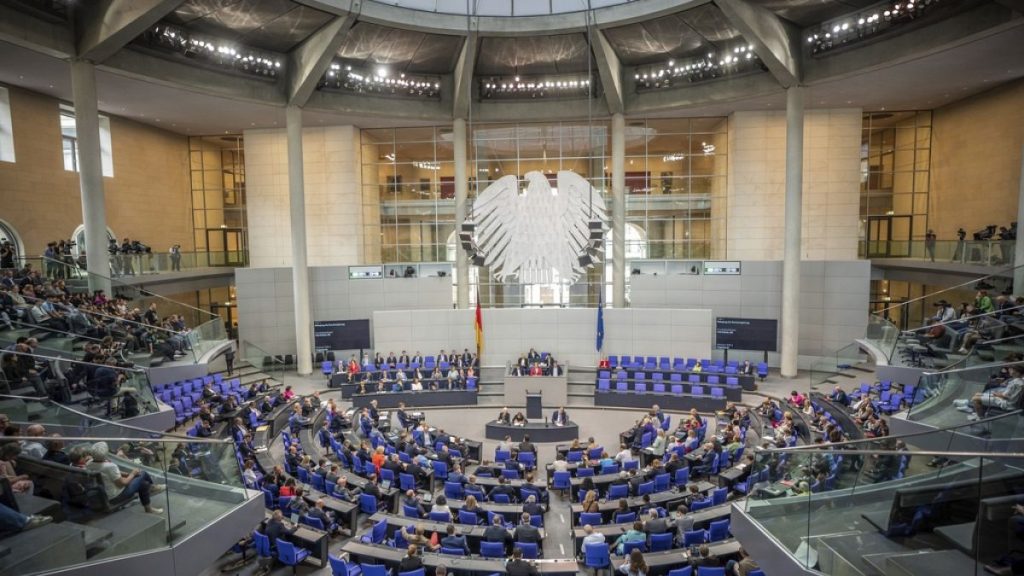The highest court in Germany upheld a proposal to downsize the parliament but overturned a planned change that would disproportionately impact smaller parties. The Federal Constitutional Court’s ruling deemed the abolition of the basic mandate clause “unlawful” following objections from various political parties. Parties receiving less than 5% of the vote will still be represented in the Bundestag if they have at least three directly elected lawmakers. The core elements of the electoral reform to reduce the size of the Bundestag and abolish overhang and compensatory mandates will remain in place. The last national election in 2021 produced a record-setting lower house of parliament with 736 members, prompting the need for downsizing.
The electoral system in Germany allows voters to cast two votes, one for a directly elected candidate and another for a party list. Each constituency elects a representative directly, and additional seats go to candidates elected on party lists. The list votes determine the percentage of seats each party wins, requiring a party to win 5% of the list vote or have at least three directly elected lawmakers. Under the old rules, parties that won more seats through direct votes than they would get through the party vote could keep those seats. However, the new system implemented last year limits the Chamber’s size to 630 members without additional seats, potentially leaving some candidates who win their constituency vote with no parliamentary seat.
The reform also eliminated a provision where parties falling short of 5% support could still get a share of the seats if they had at least three directly elected lawmakers. This change was contested by the Christian Social Union (CSU) and the Left Party, as it would impact their representation in the Bundestag. The CSU, primarily active in Bavaria, was concerned about the nationwide 5% hurdle affecting their representation, while the Left Party, falling short of 5% support in 2021, still had a full parliamentary group due to having three directly elected lawmakers. The ruling was seen as a success for Bavaria but drew criticism from the Left Party, with party members calling for further changes to the reform.
Bundestag speaker Bärbel Bas, a member of Chancellor Olaf Scholz’s Social Democrats, welcomed the court’s approval of the core elements of the new electoral law. The decision means that the Bundestag will be capped at 630 members, signaling an end to uncontrolled growth and oversized parliamentary representation. The controversy surrounding the reform highlights a longstanding disagreement among parties on how to address the issue of the bloated parliament. Lawmakers approved the plan last year to reduce the size of the Bundestag, with the next general election scheduled for September 2025.
The Supreme Court’s decision upholding the downsizing of the Bundestag while striking down the provision for parties falling short of the 5% support to get seats with three directly elected lawmakers reflects a balance between representation and parliamentary size. The court’s ruling has implications for political parties across the spectrum, as they navigate the new electoral rules in future elections. The need to maintain proportional representation while addressing the issue of an oversized parliament remains a central issue for German politics. As parties adjust to the reforms and prepare for the upcoming general election, the implications of the court’s decision will shape the future composition of the Bundestag and the representation of diverse political voices in Germany.













